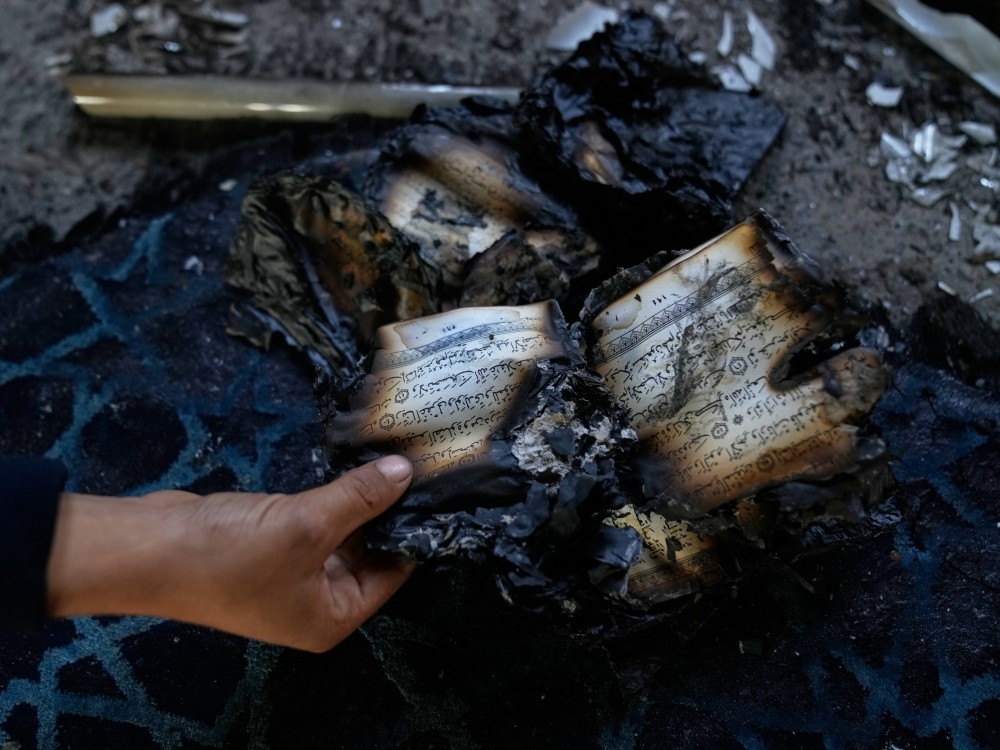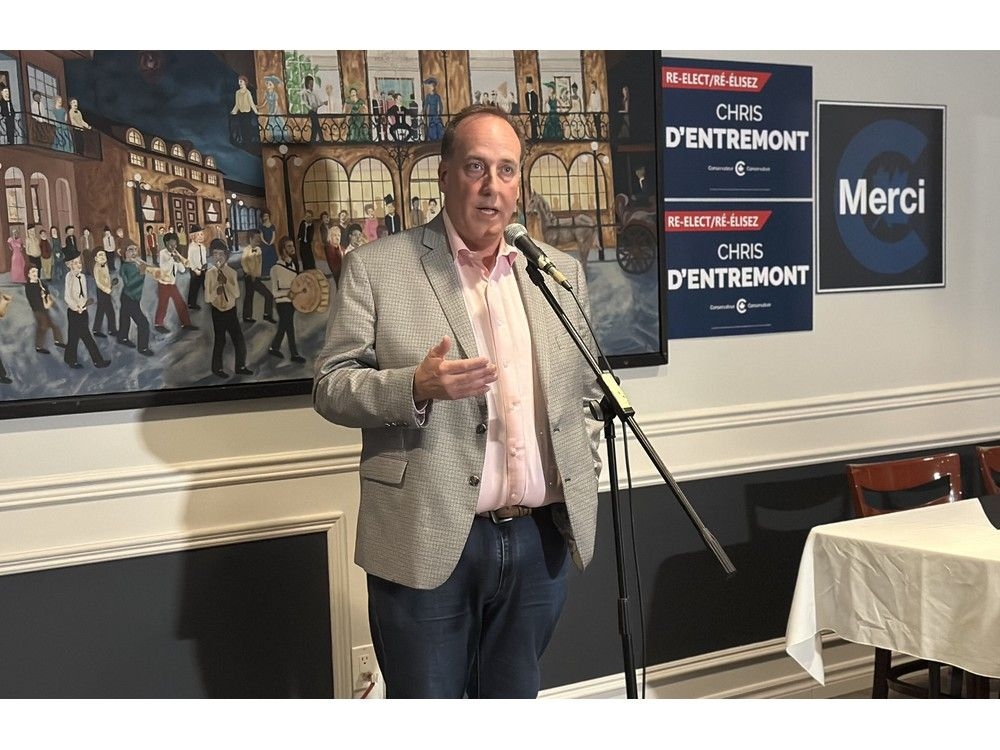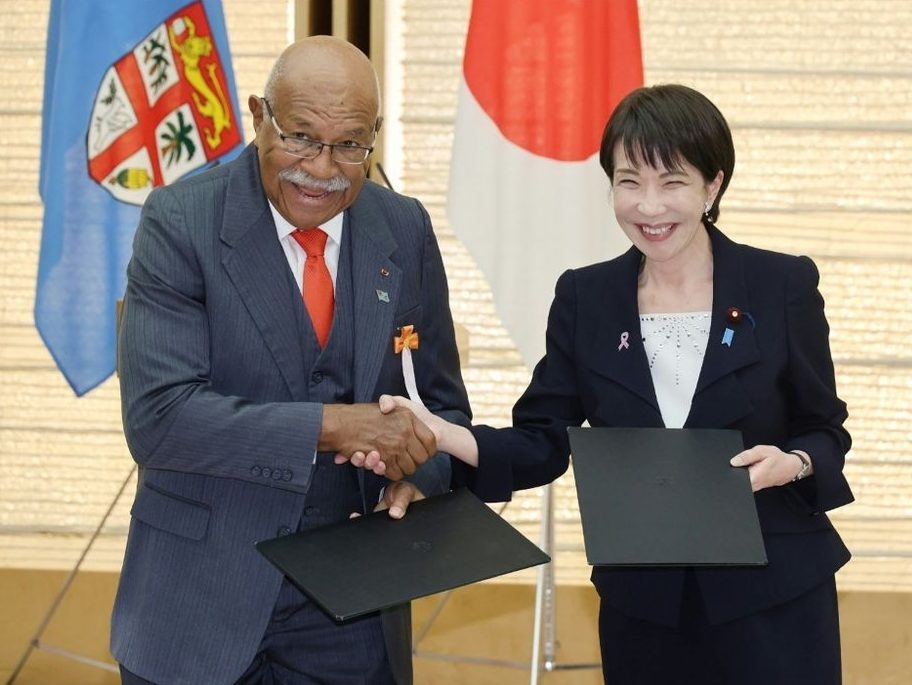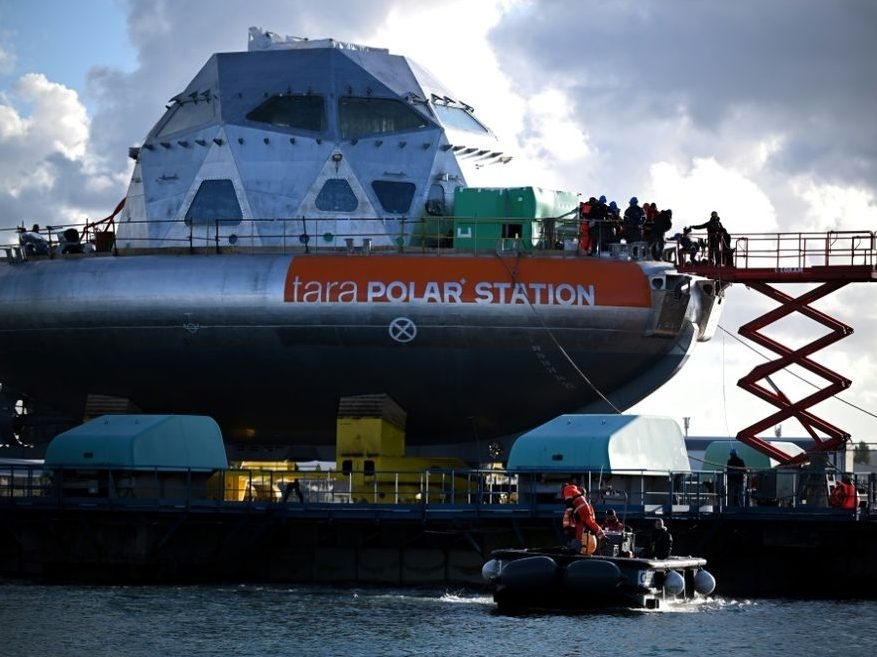In the heart of the West Bank, the village of Deir Istiya awoke to a scene of deliberate desecration. Overnight, a mosque stood as a target, torched and defaced by Israeli settlers, a stark display of animosity etched onto its walls.
An AP reporter found evidence of the attack – scorched walls, burned copies of the Quran, and damaged carpeting. Hateful messages, scrawled in Hebrew, mocked recent condemnations of settler violence, proclaiming defiance and a chilling promise of future acts.
The graffiti specifically referenced a high-ranking military official who had dared to denounce the escalating violence, a brazen challenge to authority. Israeli soldiers were present at the scene, observing the aftermath of the destruction.

This act wasn’t isolated. It represents a disturbing surge in attacks that have prompted expressions of concern from international observers, who fear the unrest could further destabilize the region.
Recent events, including a brazen assault on the villages of Beit Lid and Deir Sharaf, saw settlers setting vehicles ablaze and clashing with responding soldiers. Four Israelis were arrested, but four Palestinians were wounded in the chaos.
President Isaac Herzog condemned the attacks as a crossing of a “red line,” a rare and forceful statement from a largely ceremonial leader attempting to serve as a moral compass for the nation. He called for decisive action to eradicate the violence.
The army’s chief of staff echoed these sentiments, vowing zero tolerance for the actions of a “minority of criminals” who undermine Israeli values and divert resources from critical missions. Yet, three of the initial suspects were quickly released, pending further investigation.
This pattern of violence is not new. The mosque in Deir Istiya had been targeted before, in 2012 and 2014, marking a decades-long escalation of hostility. The situation has worsened since the outbreak of conflict in Gaza.
October marked a grim milestone, recording the highest number of settler attacks in the West Bank since the UN began tracking them in 2006. Palestinians fear the ultimate goal is forced displacement, and the numbers reflect this reality – over 3,500 Palestinians have been displaced since 2023.
Emboldened by a right-wing government, settlers are expanding beyond established settlements, creating new outposts – rudimentary structures encroaching on Palestinian land and resources. These outposts are steadily gaining control of vital agricultural areas and water sources.
Palestinians and human rights workers accuse the Israeli army and police of inaction, a failure to protect them from escalating attacks. Key government figures, including those directly involved in settlement policy and law enforcement, are proponents of the settler movement.
A chilling statistic reveals the extent of impunity: a staggering 94% of police investigation files into settler violence, spanning from 2005 to 2024, were closed without indictment. Only 3% resulted in any form of conviction, leaving a community vulnerable and without recourse.





